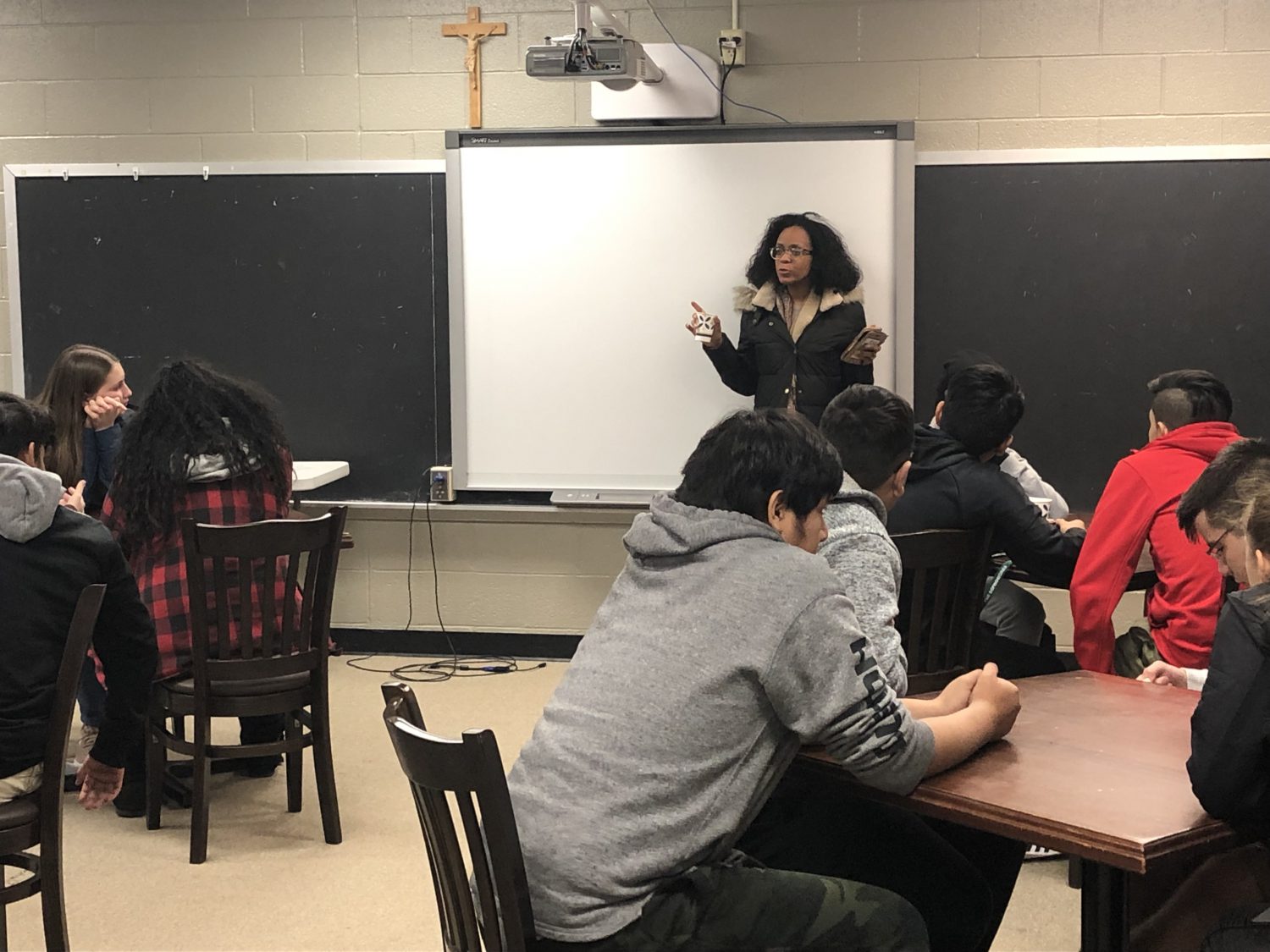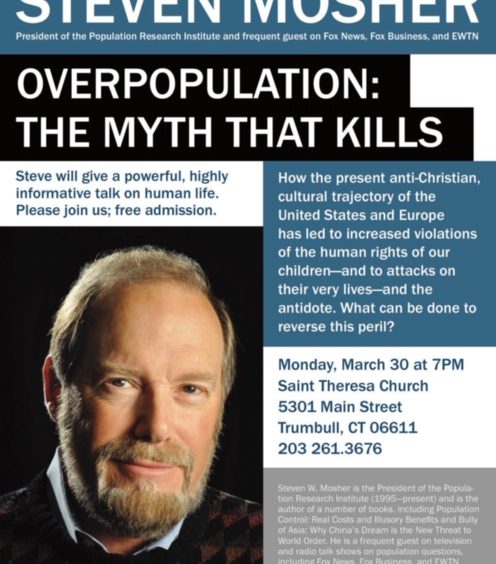This week I had the privilege of speaking to a class of teenagers at St. John Paul the Great Parish in Torrington, CT. I’ve learned that when connecting with teens it’s important to listen more than I speak. Teens are used to hearing messages from their parents, church leaders and teachers. It’s easy for adults to take their silence as agreement, even when it’s not. The truth is we can’t know what they think unless we let them share their thoughts. As a youth minister, I know how hard it can be to get them to open up. In my experience young people often feel uncomfortable voicing their opinions to adults in front of their peers – especially if they know their opinions differ from the adults.
Recently I’ve been saddened by a horrible story involving a young high school athlete and cheerleader who was killed by a football player and father of her child. The horrific murder was a result of her ex-boyfriend not wanting her to have his baby. This young man who will likely spend his life in prison said she “waited too long to to have an abortion” and therefore he needed to “take action”. It’s a tragedy that this young woman never got the love and support she needed.
While working at a pregnancy center in Connecticut, I met multiple young women contemplating abortion as well as teen parents. These young ladies are getting messages about abortion from all sorts of sources. Pro-abortion groups like Planned Parenthood are often allowed into schools to talk about abortion and sex education. Teens are hearing information on YouTube, during TV shows, and across social media. In light of that, it’s important to hear their thoughts on the information they’ve ingested.
Here are five questions that can be a good starting point for pro-life parents to have a discussion.
1) In our society young people are engaged with a number of issues (gun control, sex-trafficking, climate change, etc..) Is abortion an issue worth debating/fighting for or should it be left alone as a “personal matter” between a woman and her doctor?
2) Is abortion just a “women’s issue” only or should men have a say? Should the father of a child have any legal rights?
For this question, you can bring up common arguments men and women have regarding this topic. Many women argue that because a baby is inside of their body, they alone have the right to make a choice with their pregnancy. Some men argue that if a child is born against their wish they can be legally required to pay child support, so why don’t they have legal rights if they wanted to keep their baby?
3) Do you ever talk about pro-life views or the issue of abortion on social media? Why or why not?
I know teens who use Facebook, Instagram, and other platforms to share pro-life memes and articles. Although some young people are comfortable sharing their views in this way, others may be afraid to share because of backlash. A UCONN student started a new pro-life club recently after posting in a school Facebook group about her search for pro-life students. The question sparked controversy but it led to a UCONN Students for Life chapter.
4) If a girl was pregnant at your school and wanted to keep the baby would you know how to help her? Is your school is a place where a girl would feel safe to admit they were pregnant?
When I asked this question to the teens in Torrington I received a loud “no!” The students shared with me that it would be hard for a teen to keep a baby at their schools and feel supported. In Connecticut, teens aren’t required to tell their parents if they get an abortion. Some teens making a pregnancy decision will consult a trusted adult, but others won’t. It’s easier for a teen to tell her friends than older adults, so it’s important for teens to know how to help their peers. CT has amazing pregnancy resource centers that offer free ultrasounds, parenting support classes and material resources for women and their children. If your teen wants to help girls in this way, equip him or her with pamphlets or resources from your local center.
5) Should abortion be considered a human rights issue? Unborn children aren’t protected in the constitution, but should they be?
When you talk to your teens using these questions, make sure you don’t judge them or shame them for their answers. Let them be honest and share their opinions freely as you discuss this important topic.

















